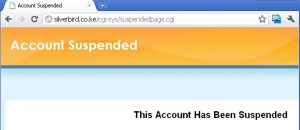The following is an excerpt from an email I got from Ramit Sethi. Check our his program for more information.
After taking a much-needed vacation to Hawaii, I’m in San Francisco for a few days. So I open up my computer this morning and see this:
“What business could I help create for my mom?”
I love this guy’s question. His mom works for a travel agency and the future looks murky, so he’s trying to figure out a business she could do on her own.
But then the commenters have at it.
- “Set up a ‘Deal of the Day’ site for travel”
- “Go ask Mary of MaryXYZ.com how she did it”
- “Consider foreigners who come to the USA…”
- “Gift baskets”
- “How about blogging?”
Some of these are actually good ideas. But if there were one word to describe them…it would be RANDOM.
Do this! No, that. What about this?
If you’ve ever tried to think of an idea to start earning money, this is a familiar pattern. You simply jump from one idea to another, never sure if they’ll work, and you let others throw their 2 cents in, too.
Here’s the surprising insight about finding an idea: Your SYSTEM is more important than any individual idea.
In other words, the process you use to find ideas is more important than any one idea itself.
Let me give you an example:
When you write a paper, essay, or book, people often obsess over words (well, at least nerdy writers like me). But what’s more important: A random word on page 9, or your structure (i.e., the table of contents)?
The structure, of course. If your organization is strong, you can have mediocre language and still have a good paper.
That’s why I spent 8 MONTHS outlining, refining, tearing apart, and revising the table of contents for my book. The process — my system — was more important than any individual word in the book.
No more random ideas
When I look at those bullet-pointed ideas above, I see some good ideas. But I also see bad ones.
And that’s just what they are — untested, unproven ideas. You see how easy it is for anyone to throw “ideas” at you…but how do you know they’ll actually work?
I could give you 50 ideas today and they would be worthless. Want me to prove it? Go search for “how to earn money” and see for yourself.
There’s a better way. Follow these 3 steps.
Step 1. Generate ideas:
First, you’ll come up with a big list of business ideas, many of them from sources you might not have explored before. There are specific techniques to generate ideas, but in general, no idea is too far-fetched at this stage.
NOTE: MOST PEOPLE STOP HERE, JUST LIKE THE ABOVE “RANDOM” IDEAS.
Step 2. Validate your ideas:
Once you get all your business ideas in one place, you need some sort of filter. Almost nobody does this, which is why they waste 9 months of their lives on futile ideas that will never pay.
In this step, you’ll weed out the bad ideas from the good until you’re left with the very best.
When you explain validating your idea before you invest significant time, you can hear the same reaction from people: “Yeah… that is interesting. Maybe I should do that.”
It’s like telling someone they should get in shape. They “know” they should… but they won’t.
4 Reasons People DON’T build a system
So…why would people SKIP this step and jump right to random ideas?
This is what we found through research:
- They’re afraid of discovering their one idea will be proven to be unprofitable… and then what? (In reality, the idea is not your secret sauce, the validation process is.)
- Not sure how to actually do customer research (so they avoid it entirely)
- Worried about having to talk to people they don’t know (“What will I say?”)
- Not sure if they’re serious enough about the project to do things like customer research
This is really important stuff. Re-read those bullet points again.
The biggest difference between those who succeed and those who pursue random idea after random idea? The ones who use a system can identify which ideas are good and which ones aren’t…BEFORE they pursue them.
Step 3. Get your first sale:
Once you have a solid, market-confirmed idea, it’s time to find real work. You’ll take your best idea and test it against the market by trying to find 3 paying clients.
A system…not random “ideas”
If your goal is to find a way to earn money on the side, you’ll want a method for finding, testing, and refining ideas — a SYSTEM.
